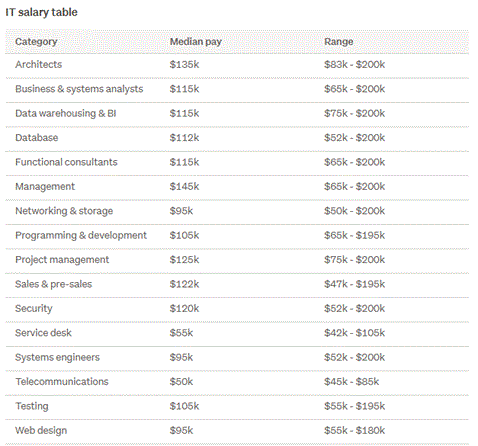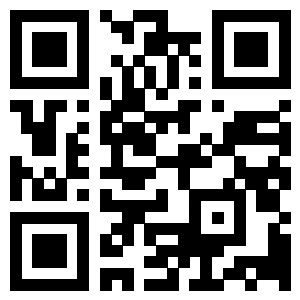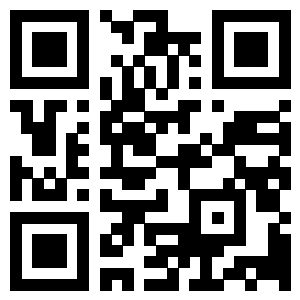2017年12月英语四级高频词汇详解(三)
1. outstanding a. [aʊt'stændɪŋ] 杰出的,突出的,显著的
词义辨析:outstanding, noticeable, remarkable, conspicuous, striking
outstanding 通常指与同行或同类的人相比显得优秀或杰出,或具有他人或别的事物所没有的特征。
noticeable 指所描绘的事物引人注意。
remarkable 通常指因有与众不同的特点或优越性而引起人们注意或称道。
conspicuous 通常指因成绩卓著,而引人注意,或指因外观奇特、花哨或言行举止不合常规而令人注意。
striking 侧重能给观察者产生强烈而深刻印象。
例句:Einstein was an outstanding scientist.
爱因斯坦是位杰出的科学家。
2. export n. [ˈekspɔːt;ɪkˈ-] 出口(物) v. 出口,输出
例句:He posted up the export sales.
他把外销帐过到分类帐上。
例句:Africa is exporting beef to Europe.
非洲向欧洲出口牛肉。
3. import n. [ɪm'pɔːt; 'ɪm-]进口(物) v. 进口,输入
例句:The import of cotton goods went up sharply in 1986.
在1986年,棉织品的进口猛增。
例句:The government has an interest in importing scientific equipment.
政府对引进科学设备非常感兴趣。
4. impose vt. [ɪm'pəʊz]把...加强(on);采用,利用
例句:The host country may impose foreign exchange control.
东道国则可能强行实施外汇管制。
例句:Reality would impose the main lines of our policy.
我们的主要政策方针都将取决于现实。
5. religion n. [rɪ'lɪdʒ(ə)n]宗教,宗教信仰
Muslim(伊斯兰教)、Buddhism(佛教)、Christianity(基督教)都属于宗教信仰范畴。
例句:Crescent is a sign of the Muslim religion.
新月形是伊斯兰教的象征。
例句:Buddhism is the religion founded by Buddha in North India.
佛教是佛陀创始于印度北部之宗教。
6. religious a. [rɪ'lɪdʒəs]宗教的
例句:These two countries had three religious wars in twenty years.
这两个国家在20年里发生过三次宗教上的冲突。
例句:She is very religious and goes to church three times a week.
她非常虔诚,每周去教堂三次。
7. victim n. ['vɪktɪm] 牺牲品,受害者
一般来说,victim表示“受害者”,没有“死亡”的意思,但是用于疾病名前的时候,常指“因某病而死的死者”。
例句:He is the victim of a masked holdup.
他是一次蒙面抢劫的受害者。
8. video n. ['vɪdɪəʊ]电视,视频 a. 电视的,录像的
video arcade 电子游戏中心 digital video 数字视频
例句:I have seen this video before.
我以前看过这录像节目。
例句:I don't see any point of playing video games all day.
我看不出整天打电动玩具有什么意义。
9. videotape n. ['vɪdɪə(ʊ)teɪp]录像磁带 v. 把...录在录像带上
例句:Al-Jazeera said a group calling itself "Ansar al-Tawid wal Sunnah" produced the videotape.
半岛电视台说,一个自称统一圣行拥护者的组织制作了这个录像。
10. offend v. [ə'fend] 冒犯,触犯
词义辨析:offend, insult
offend 普通用词,指一般地伤害他人感情,使其不愉快。
insult 语气强,指肆无忌惮地侮辱,使其难堪或羞愧。
offend against违反(违犯) offend the ear 剌耳
例句:They were careful not to offend his nibs.
他们小心翼翼,不敢冒犯这位大人。
11. bother v. ['bɒðə] 打搅,麻烦
bother…with/about…打扰或麻烦某人时
例句:Don' t bother about answering his letter.
你不必回复他的信。
12. interfere v. [ɪntə'fɪə] 干涉,干扰,妨碍
词义辨析:interfere, intervene, meddle
interfere 侧重指无权或未获允许而妨碍、阻扰、干涉他人之事。
intervene 书面用词,指介入争端,进行调停,也指干涉他人之事。
meddle 指干预与自己毫不相关的事或不属于自己职责范围的事,隐含未经许可或授权。可与interfere换用。
例句:I don't want to interfere with you, proceed with your work.
我不想打扰你了,你继续工作吧。
13. internal a. [ɪn'tɜːn(ə)l]内部的,国内的
internal medicine 内科医学
词义辨析:inner, inside, interior, internal, inward
inner 含义广泛,指事物中心或接近中心的部位,也可指内心隐密的活动。
inside 多指处于某物内部或靠近内部,常可与inner换用,可引申指内幕的,秘密的。
interior 指某物的内部,尤指某物的内侧,也可指内地的或国内的。
internal 书面用词,医学上多用,指事物的内部,也可指国内的或内政的。
inward 指朝着中心或内部方向的,侧重方向而不是位置,也可指内心的隐密活动。
例句:In our internal deliberations he spoke in favor of reducing defense expenditures.
在内部讨论时,他表示赞成削减军事开支。
14. beforehand ad. [bɪ'fɔːhænd]预先,事先
be beforehand with 预先(提前)
例句:Get everything ready beforehand.
事前将每一切事都准备好。
15. racial a. ['reɪʃ(ə)l] 人种的;种族的
racial prejudice 种族偏见 racial equality 种族平等 racial discrimination种族歧视
例句:He went on record as opposing racial discrimination.
他公开表示反对种族歧视。
16. radiation n. [reɪdɪ'eɪʃ(ə)n]放射物,辐射
radiation sickness 辐射病; gamma radiation 伽马射线
例句:Radiation reached unheard-of levels.
辐射作用已达到前所未有的程度。
17. radical a. ['rædɪk(ə)l]根本的;激进的
例句:These developments have effected a radical change in social life.
这些发展使社会生活发生了根本变化。
例句:A radical critic of society has turned into a High-Church reactionary.
一个激进的社会批评家变成了高教会派的反动分子。
18. range n. [reɪn(d)ʒ] 幅度,范围 v. (在某范围内)变动
例句:His reading covers a wide range of subjects.
他阅读的书籍涉及多种学科。
例句:Our conversation ranged over many topics.
我们的谈话涉及很多话题。
19. wonder n. ['wʌndə]惊奇,奇迹 v. 想知道,对...感到疑惑
例句:We have become explorers and scientists with our need to ask questions and to explore wonders.
为了解答疑问和探索奇妙的自然,我们成为探险家和科学家。
例句:I wonder if there are some balcony seats still available.
不知道还有没有包厢的位子?
20. isolate vt. ['aɪsəleɪt] 使隔离,使孤立
词义辨析:isolate, separate, segregate, insulate
isolate 侧重指完全分离、隔开,也指人或物处于完全孤立的状态。
separate 指一般意义上的分开或隔开。
segregate 指把一群人或物从整体或主体中分离出来。
insulate 指隔开、分离,尤指用某种东西阻挡从里面逃出或从外面进入的东西。作技术用词时,专指用某种绝缘体隔断通路。
例句:The patient should isolate from his child.
这个病人必须立刻和他的孩子隔离。
21. issue n. ['ɪʃuː; 'ɪsjuː] 问题,争论点;发行,(报刊)一期
词义辨析:problem, question, issue, matter
problem: 指客观上存在的、难以处理或难以理解的问题。
question: 通常指用口头或书面提出来要求回答或有待讨论解决的问题。
issue: 多指意见能达到一致的问题,但要通过争论或讨论解决。
matter: 含义不很具体,暗示人们考虑和关心的事和话题。
issue sth to sb/ issue sb sth 发放 at issue 在争论(在争论中) back issue 过期刊物
例句:The abortion issue is political dynamite.
堕胎问题在政治上是个爆炸性的问题。
22. hollow a. ['hɒləʊ] 空的,中空的,空虚的
beat someone hollow 大大超过某人
例句:The words he spoke sounded hollow and false.
他所说的话显得既空洞又虚伪。
23. hook n. [hʊk] 钩vt. 钩住
by hook or by crook不择手段, 由种种方法, 无论如何 off the hook 脱离困境
例句:The lamp depends from a hook.
这盏灯悬吊在钩子上。
24. adequate a.['ædɪkwət] 适当地;足够
adequate to/for 足够
例句:He had not an adequate arena for the exercise of his talents.
他没有充分发挥其才能的场所。
例句:We had adequate food for a week's journey.
我们有足够的食物可以做一星期的旅行。
25. adhere vi. [əd'hɪə] 粘附,附着;遵守,坚持
adhere to 坚持, 依附
例句:We will urge them to adhere to the Paris Agreement.
我们将敦促他们遵守巴黎协议。
26. ban vt. [bæn]取缔,禁止
例句:Anti-nuclear organizations want to ban the bomb.
反核武器组织要求禁止使用核武器。
27. capture vt. ['kæptʃə] 俘虏,捕获
词义辨析:arrest, capture, catch, seize, trap
arrest: 指根据法律或命令进行逮捕并予以监禁或拘留
capture: 指通过武力或计谋等,战胜抵抗而捉住敌人或动物
catch: 普通用词,指捉住跑动或隐藏中的人或动物,一般指活捉
seize: 侧重指以突然、有力地动作迅速抓住或捉住
trap: 多指诱捕
例句:The fox doubled back to avoid capture.
狐狸顺原路折回以避免被捕获。
28. valid a. ['vælɪd] 有效的,有根据的;正当的
例句:How long is the ticket valid?
这车票有效期多久?
例句:Disavowal of pain is valid.
否认疼痛是有确实根据的。
例句:Oversleeping is not a valid excuse for being late for school.
睡过头并不是上学迟到的正当理由。
29. valley n. ['vælɪ]山谷,峡谷
rift valley 地堑, 裂谷 Death Valley 死谷
例句:Moonlight illuminated the valley.
月光照亮了山谷。
30. consistent a. [kən'sɪst(ə)nt] 坚固的;一致的,始终如一的
consistent with 符合, 与... 一致
例句:Your conduct is not consistent with what you say.
你的行为和你所说的不一致。
31. continuous a.[kən'tɪnjʊəs 继续的,连续(不断)的
词义辨析:continuous, continual, successive, constant, persistent
continuous: 语意最强,强调在时间和空间上没有间断。
continual: 强调重复或持续发生,但连续之间允许有间断。
successive: 强调事物一个接一个地发生,无间断。
constant: 多指习惯性的重复和不变的持续。
persistent: 普通用词,可指不懈的努力,也可指任何连续不断或重复出现的事物。
例句:Orchard programmes need continuous detailed attention.
种子园工作要求持续和细心料理。
32. continual a. [kən'tɪnjʊəl] 不断地,频繁的
例句:The country suffered from a continual brain drain because of bad economy.
那个国家因经济不景气,人才不断外流。
33. explode v. [ɪk'spləʊd; ek-]爆炸;爆发;激增
例句:Many boys explode firecrackers on the Lantern Festival.
许多男孩在元霄灯节燃放鞭炮。
例句:Investment in technology stocks exploded in the 1990s.
二十世纪九十年代的,对科技股票的投资迅速增加。
34. exploit v. [ɪk'splɒɪt; ek-] 剥削;利用,开采
例句:The capitalists exploit the workers in order to maximize profits.
资本家剥削工人是为了使利润最大化。
例句:Television advertisers can exploit a captive audience.
电视广告商能利用被动观众。
例句:We are trying to exploit the oil under the sea.
我们正设法从海底开采石油。
35. explore v. [ɪk'splɔː; ek-]勘探
例句:Scientists have been conducting laboratory experiments for 20 years to explore this possibility.
科学工作者为探索这种可能性已经在实验室中进行了20年的实验。
36. explosion n. [ɪk'spləʊʒ(ə)n; ek-]爆炸;爆发;激增
例句:Our deterrent weapons are guarded against accidental explosion or use.
我们的威慑武器都有人守卫,防范意外爆炸或使用。
例句:The explosion of oil prices caused an economic crisis.
石油价格的急剧上涨引起了经济危机。
37. explosive a. [ɪk'spləʊsɪv; ek-]爆炸的;极易引起争论的
例句:The most impressive volcanic phenomena are explosive eruptions.
最令人难忘的火山现象是爆炸喷发。
例句:The question of race today is an explosive one.
种族问题在今天是一个会引起激烈争论的问题。
38. remote a. [rɪ'məʊt] 遥远的,偏僻的
例句:The most remote two points in this world are two estranged hearts.
人世间相距最远的两点,是两颗隔膜的心。
例句:Mail comes to this remote village only once a week.
邮车每周只到这个偏僻的村庄一次。
39. removal n. [rɪ'muːv(ə)l] 除去,消除
例句:Our ultimate objective is the removal of all nuclear weapons.
我们的最终目标是消除所有核武器。
40. render vt. ['rendə] 使得,致使
render up 放弃(让与);render a bill 开帐单;render service 提供服务
例句:His back injury had rendered him unfit for work.
他的背伤使他无法胜任这份工作。
- 相关阅读







